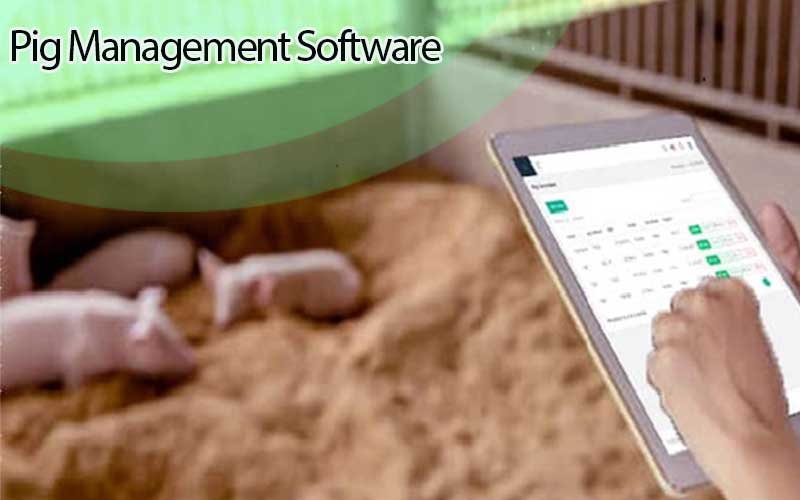5 Records Every Pig Farmer Must Keep For a Successful Piggery Operation
For many pig farmers, the idea of keeping track of every little detail may seem daunting, or even unnecessary. However, maintaining accurate and comprehensive records is essential for ensuring the health, productivity, and profitability of your pig farm.
Pig farm records are detailed documentation of various aspects of pig farming operations, including but not limited to breeding, feeding, health, medication, expenses, and income. These records serve as a comprehensive database that helps farmers track and manage their operations effectively, make informed decisions, and optimize their farming practices for better outcomes.
Every pig farm record must provide quantitative data (numerical information) and qualitative data (descriptive or observational information). This ensures a comprehensive understanding of the farming operations and allows for informed decision-making. Pig farmers operate better when they have the best software for successful pig farm management.
In this blog, we'll explain the importance of record-keeping in pig farming and explore five essential records every pig farmer should maintain. From tracking individual pig performance to complying with regulatory requirements and optimizing financial management, we'll uncover how maintaining detailed records can be a game-changer for your pig farming operation. So grab your notepad and pen – it's time to take your pig farming to the next level!
Why Pig Farmers Don't Keep Adequate Farm Records
There are several reasons why pig farmers don't keep farm records, but research and interviews have proved these 4 reasons are the most popular ones.
Time Constraints:
Pig farming is a demanding and time-consuming endeavor, requiring farmers to juggle multiple tasks throughout the day. With the constant need to tend to the pigs, manage feeding schedules, maintain facilities, and address unforeseen challenges, farmers often find themselves stretched thin on time. As a result, the meticulous task of record-keeping may fall by the wayside, perceived as a luxury rather than a necessity.
Lack of Knowledge:
Many pig farmers may lack the necessary training or expertise in record-keeping practices. Without proper guidance or understanding of the importance of maintaining accurate records, farmers may underestimate the value of this task or feel overwhelmed by the prospect of implementing a comprehensive record-keeping system. As a result, they may resort to ad-hoc or informal methods of record-keeping, which can lead to inconsistencies and inaccuracies.
Resource Constraints:
For small-scale pig farmers or those operating on a limited budget, investing in record-keeping tools or software may seem financially prohibitive. Traditional pen-and-paper methods require time and effort to maintain, while more sophisticated digital solutions may require upfront costs or ongoing subscription fees. In the face of competing priorities and financial constraints, farmers may prioritize other aspects of their operation over investing in record-keeping infrastructure.
Perception of Low Return on Investment:
Some pig farmers may perceive record-keeping as a time-consuming task that offers little immediate return on investment. In an industry where profit margins can be slim and operational challenges abound, farmers may prioritize activities that directly impact productivity, such as breeding, feeding, and disease management. Without recognizing the long-term benefits of accurate record-keeping in optimizing performance, mitigating risks, and informing decision-making, farmers may overlook this critical aspect of farm management.
5 Essential Reasons for Maintaining Records on Your Pig Farm
Even though most farmers see the record-keeping on the farm as a burden, the importance of farm records supersedes any misconception they have.
Here are 5 reasons why pig farm records are important to a farming operation
Facilitating Data-Driven Decision Making:
Detailed records serve as a valuable source of data that allows pig farmers to make informed decisions about various aspects of their operation. Whether it's adjusting feeding plans, monitoring health trends, or evaluating breeding performance, having access to accurate and up-to-date records enables farmers to analyze trends, identify areas for improvement, and implement targeted strategies to enhance productivity and profitability.
Ensuring Compliance with Regulations:
Pig farming operations are subject to various regulations and standards related to animal welfare, food safety, and environmental protection. Maintaining comprehensive records helps farmers demonstrate compliance with regulatory requirements by providing evidence of adherence to guidelines, protocols, and best practices. This not only helps farmers avoid penalties and legal issues but also enhances their reputation as responsible stewards of animal and environmental welfare.
Monitoring Individual Pig Performance:
Each pig in a farming operation is unique, with its growth trajectory, health status, and behavioral patterns. By keeping detailed records of pig identification, feeding history, health events, and performance metrics, farmers can track the progress of individual pigs over time. This allows farmers to identify outliers, detect early signs of health problems, and tailor management practices to meet the specific needs of each animal, ultimately optimizing overall herd performance.
Supporting Breeding and Genetic Improvement Programs:
Breeding is a fundamental aspect of pig farming to produce offspring with desirable traits such as growth rate, feed efficiency, and disease resistance. Accurate breeding records, including mating dates, parentage information, and litter data, are essential for managing breeding programs effectively. By analyzing breeding records, farmers can assess the genetic merit of their breeding stock, make informed breeding decisions, and selectively breed animals with superior traits to improve herd genetics over time.
Enhancing Financial Management and Planning:
Successful pig farming requires sound financial management and planning to ensure profitability and sustainability. Keeping detailed records of income, expenses, inventory, and production costs allows farmers to track financial performance, monitor cash flow, and identify opportunities for cost savings and efficiency improvements. By maintaining accurate financial records, farmers can make informed budgeting decisions, assess the profitability of different aspects of their operations, and develop strategic plans for future growth and investment.
5 Records Every Pig Farmer Must Keep
There are several records to maintain on a pig farm. Each of them has its relevance in keeping track of farm operations, But these are 5 major records that must be maintained by every pig farmer who wants to succeed.
1. Pig Identification (I.D.) Records
These records contain detailed information about each animal in the herd, including unique identification numbers, ear tags, or electronic identification (e.g., RFID tags). These records may also include information about the pig's breed, gender, date of birth, parentage (if known), and any relevant physical characteristics.
Pig identification records are essential for tracking individual animals throughout their lifecycle, monitoring performance, and managing breeding programs. By accurately identifying and tracking pigs, farmers can monitor growth rates, assess genetic traits, track lineage for pedigree purposes, and ensure traceability for food safety and regulatory compliance.
2. Feeding Plan and Inventory Records
The major routine activity in a pig farm is feeding, hence the feeding plan and inventory records document the farm's feeding program, including feed formulations, feeding schedules, and inventory levels of feed ingredients and finished feed products. These records track feed consumption by individual pigs or groups and may include information on feed types, quantities, nutritional content, and delivery methods.
Proper feed nutrition management is crucial for pig health, growth, and productivity. Feeding plans and inventory records help farmers ensure that pigs receive balanced diets tailored to their nutritional requirements at each stage of growth and production. By monitoring feed inventory levels and usage, farmers can manage feed costs, prevent feed shortages or wastage, and optimize feeding strategies to maximize efficiency and profitability.
3. Health and Medication Records
Pigs only perform well when they are in good health, so a farmer must maintain a health and medication record that contains detailed information about the health status, medical treatments, and disease management protocols for individual pigs or groups. These records document vaccinations, medications, treatments, diagnostic test results, disease outbreaks, and veterinary visits.
Maintaining pig health is essential for maximizing productivity, minimizing disease risks, and ensuring animal welfare. Health and medication records help farmers monitor the health status of the herd, track disease prevalence, and implement preventive health measures such as vaccination programs and biosecurity protocols. Timely and accurate recording of health events allows for prompt diagnosis and treatment of illnesses, reducing the spread of disease and minimizing production losses.
4. Income and Expenses Records
These records track the financial performance of the entire pig farm, including revenue from pig sales, income from other sources (e.g., breeding stock sales, pork products), and various operating expenses (e.g., feed costs, labor, veterinary services, utilities, equipment maintenance).
Monitoring income and expenses is essential for evaluating the farm's profitability, managing cash flow, and making informed financial decisions. Income and expense records provide valuable insights into the farm's financial health, cost structure, and revenue streams. By analyzing financial data, farmers can identify areas for cost savings, optimize resource allocation, and implement strategies to improve overall financial sustainability and profitability.
5. Pregnancy and Farrowing Records
Pregnancy and farrowing records document breeding activities, pregnancy status, farrowing outcomes, and litter data for individual sows or groups. These records track breeding dates, mating outcomes, pregnancy diagnoses, farrowing dates, litter sizes, and piglet birth weights.
Managing reproductive performance is critical for optimizing piglet production, litter quality, and sow productivity. Pregnancy and farrowing records help farmers monitor breeding cycles, predict farrowing dates, and track reproductive efficiency metrics such as farrowing rates and piglet survival rates. By maintaining accurate records of reproductive events, farmers can identify breeding problems, implement corrective measures, and improve overall reproductive performance and profitability.
Farm Records Simplified with Pigax
Keeping track of multiple records manually can be time-consuming and prone to errors. That's where Pigax comes in. Pigax is a comprehensive pig management software designed to streamline farm record management and optimize farming operations. With Pigax, you can maintain all your farm records on one platform, from pig identification to feeding plans, health records, financial transactions, and breeding data. Pigax is all you need to master pig farm management. Its intuitive interface and customizable features make it easy to track and analyze farm data, enabling you to make informed decisions and maximize your farm's potential.
So why wait? Say goodbye to countless paperwork and start streamlining your farm record management with Pigax today to take your pig farming operation to new heights of success.




